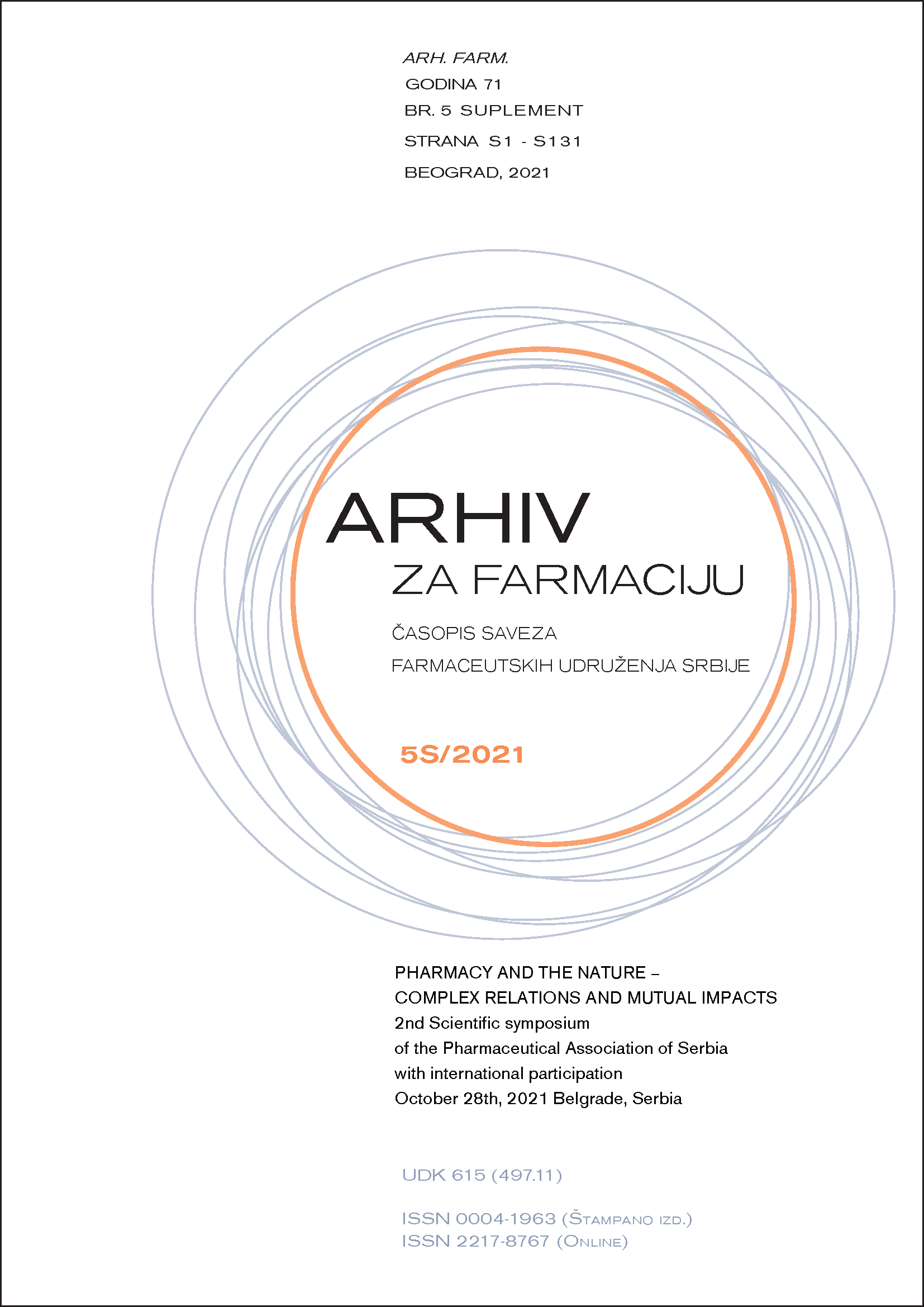SKIN MICROBIOME AND COSMETIC PRODUCTS
Abstract
Microflora or microbiota is a term that describes millions of different organisms (bacteria, yeasts, fungi, viruses) that live on human skin (1). The microbiome of human skin has become the focus of the dermatological and cosmetic research, and latter studies suggest that its’ maintenance is essential for healthy and good looking skin. Cosmetic products can shape specific microbial communities of the skin by changing their chemical environment. Cosmetic cleansing products are effective in maintaining skin hygiene and a healthy biofilm, and special attention is given to antibacterial soaps which could eliminate both pathogenic and beneficial microorganisms. Consequently, the reduction in the number of good bacteria caused by the frequent use of antibacterial soaps can lead to negative effects on skin health in the long run. A study evaluating the impact and effects of regular use of cosmetic products on skin microbiome showed that cosmetic products alter bacterial diversity – inducing a temporary change in the number and proportion of bacteria on the skin, this being specific for the type of cosmetic product, the place of application and the person (2). The results obtained in another study indicate that the use of synthetic ingredients could cause the damage of skin microbiome (3). The cosmetics industry has focused on the production of new cosmetic products that would affect the microbiome in order to improve the appearance and condition of the skin, and the development of these products involves one of three basic approaches: balancing or improvement of the skin microbiome, protection of skin microbiome and activation of skin microbiome in order to achieve beneficial effects on the skin. Data on the importance of microbiome and its metabolites in functioning of the skin barrier drew the attention of cosmetic scientists to bacterial lysates, fermentation products and metabolites to be used as cosmetic active ingredients that can achieve positive effects on the skin in various types of cosmetics. The main challenges in the development of cosmetic active ingredients and cosmetic products in the service of microbiome are their safety, stability and efficacy investigation, and substation of microbiome claims for these products.

